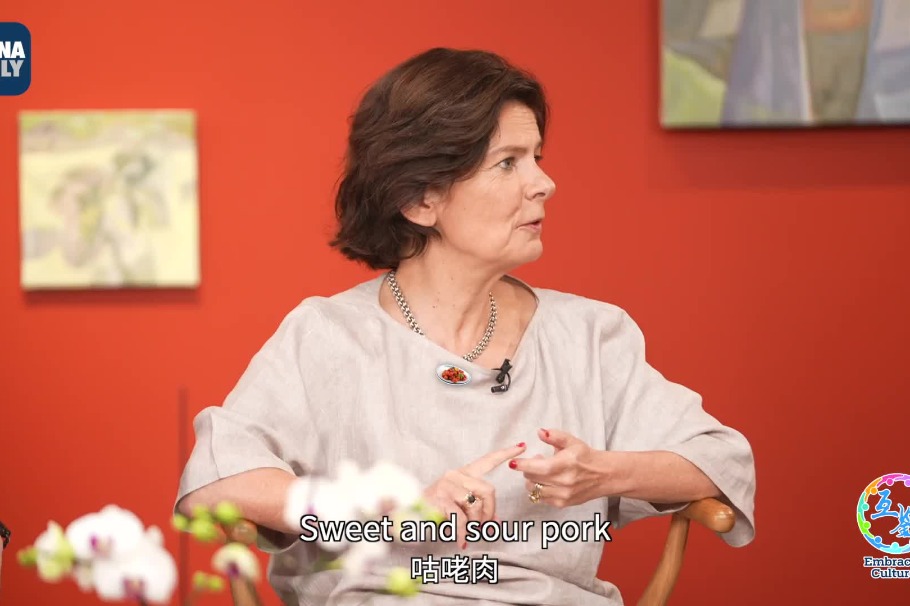奥巴马就叙利亚问题发表讲话全程(中字)
新浪网 2013-09-11 16:01

北京时间今晨9时,奥巴马就叙利亚问题发表全国讲话,称“如果不采取行动,阿萨德政权会看到没有理由不停止使用化武”,军事干预可帮叙民众免遭化武攻击。奥巴马承诺将与俄合作迫使叙放弃化武,但保留在外交失败后动武的方案。
My fellow Americans, tonight I want to talk to you about Syria, why it matters and where we go from here. Over the past two years, what began as a series of peaceful protests against the repressive regime of Bashar al-Assad has turned into a brutal civil war. Over a hundred thousand people have been killed. Millions have fled the country. In that time, America has worked with allies to provide humanitarian support, to help the moderate opposition and to shape a political settlement.
But I have resisted calls for military action because we cannot resolve someone else's civil war through force, particularly after a decade of war in Iraq and Afghanistan.
The situation profoundly changed, though, on Aug. 21st, when Assad's government gassed to death over a thousand people, including hundreds of children. The images from this massacre are sickening, men, women, children lying in rows, killed by poison gas, others foaming at the mouth, gasping for breath, a father clutching his dead children, imploring them to get up and walk. On that terrible night, the world saw in gruesome detail the terrible nature of chemical weapons and why the overwhelming majority of humanity has declared them off limits, a crime against humanity and a violation of the laws of war.
This was not always the case. In World War I, American GIs were among the many thousands killed by deadly gas in the trenches of Europe. In World War II, the Nazis used gas to inflict the horror of the Holocaust. Because these weapons can kill on a mass scale, with no distinction between soldier and infant, the civilized world has spent a century working to ban them. And in 1997, the United States Senate overwhelmingly approved an international agreement prohibiting the use of chemical weapons, now joined by 189 governments that represent 98 percent of humanity.
On Aug. 21st, these basic rules were violated, along with our sense of common humanity.
No one disputes that chemical weapons were used in Syria. The world saw thousands of videos, cellphone pictures and social media accounts from the attack. And humanitarian organizations told stories of hospitals packed with people who had symptoms of poison gas.
Moreover, we know the Assad regime was responsible. In the days leading up to Aug. 21st, we know that Assad's chemical weapons personnel prepared for an attack near an area they where they mix sarin gas. They distributed gas masks to their troops. Then they fired rockets from a regime-controlled area into 11 neighborhoods that the regime has been trying to wipe clear of opposition forces.
Shortly after those rockets landed, the gas spread, and hospitals filled with the dying and the wounded. We know senior figures in Assad's military machine reviewed the results of the attack. And the regime increased their shelling of the same neighborhoods in the days that followed. We've also studied samples of blood and hair from people at the site that tested positive for sarin.
When dictators commit atrocities, they depend upon the world to look the other way until those horrifying pictures fade from memory. But these things happened. The facts cannot be denied.
The question now is what the United States of America and the international community is prepared to do about it, because what happened to those people, to those children, is not only a violation of international law, it's also a danger to our security.
Let me explain why. If we fail to act, the Assad regime will see no reason to stop using chemical weapons.
As the ban against these weapons erodes, other tyrants will have no reason to think twice about acquiring poison gas and using them. Over time our troops would again face the prospect of chemical warfare on the battlefield, and it could be easier for terrorist organizations to obtain these weapons and to use them to attack civilians.
If fighting spills beyond Syria's borders, these weapons could threaten allies like Turkey, Jordan and Israel.
And a failure to stand against the use of chemical weapons would weaken prohibitions against other weapons of mass destruction and embolden Assad's ally, Iran, which must decide whether to ignore international law by building a nuclear weapon or to take a more peaceful path.
This is not a world we should accept. This is what's at stake. And that is why, after careful deliberation, I determined that it is in the national security interests of the United States to respond to the Assad regime's use of chemical weapons through a targeted military strike. The purpose of this strike would be to deter Assad from using chemical weapons, to degrade his regime's ability to use them and to make clear to the world that we will not tolerate their use. That's my judgment as commander in chief.
But I'm also the president of the world's oldest constitutional democracy. So even though I possessed the authority to order military strikes, I believed it was right,

















 英语点津微信
英语点津微信 双语小程序
双语小程序